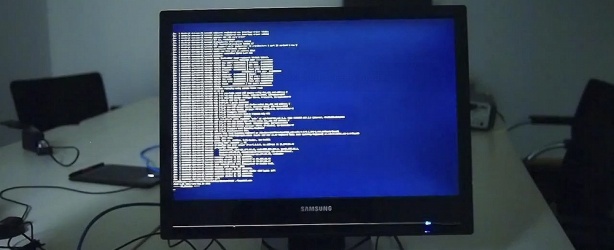Raspberry Pi: the modder's dream machine?
January 26, 2012 | 08:25
Companies: #arm #broadcom #raspberry-pi

Hardware is no good without software, of course, and while the final decisions on the default software load-out - to be loaded on to a bootable SD card, which is the Raspberry Pi’s only form of on-board storage - have yet to be made, one thing is certain: it’s going to be running GNU/Linux.
Initially built around the popular Ubuntu Linux distribution from Canonical, the company’s decision to cease development of the ARMv6 branch of the code in favour of ARMv7 - incompatible with the Broadcom SoC at the heart of the Raspberry Pi - means that alternatives have been found. ‘Red Hat has been extremely helpful to us,’ Upton told us. ‘There’s at least one distribution keeping its ARMv5/ARMv6 line alive specifically in order to help us, which isn't a cost free exercise.’
An ARM-compatible copy of Red Hat Linux transforms the Raspberry Pi from a techie’s development platform in the vein of the - significantly more expensive - BeagleBoard into a true general-purpose computer suitable for all; but that’s hardly the end of the story.
Since hitting headlines around the world - thanks, Upton claims, to the efforts of his wife Liz, a journalist and the project’s chief publicist: ‘she's basically worked on this almost full-time for four or five months, and built up a real sense of community around a device which you can't even buy’ - interest in developing for the system skyrocketed.
Despite the small number of beta boards available, many of which were earmarked for kernel development and coders working on the Qt framework, impressive ports have already begun to appear. The XBMC team has unveiled its popular open-source home theatre system running from a Model B Raspberry Pi, while a coder working directly on the project has managed to get Apple’s AirPlay streaming technology working on the devices.
Other projects have been a little more tongue-in-cheek, with Neil Davidson of Red Gate Software purchasing one of the first ten commercial beta boards to be sold and working with colleagues to produce what could go down in history as the world’s first Raspberry Pi-powered Rick-roll.
Initially built around the popular Ubuntu Linux distribution from Canonical, the company’s decision to cease development of the ARMv6 branch of the code in favour of ARMv7 - incompatible with the Broadcom SoC at the heart of the Raspberry Pi - means that alternatives have been found. ‘Red Hat has been extremely helpful to us,’ Upton told us. ‘There’s at least one distribution keeping its ARMv5/ARMv6 line alive specifically in order to help us, which isn't a cost free exercise.’
An ARM-compatible copy of Red Hat Linux transforms the Raspberry Pi from a techie’s development platform in the vein of the - significantly more expensive - BeagleBoard into a true general-purpose computer suitable for all; but that’s hardly the end of the story.
Since hitting headlines around the world - thanks, Upton claims, to the efforts of his wife Liz, a journalist and the project’s chief publicist: ‘she's basically worked on this almost full-time for four or five months, and built up a real sense of community around a device which you can't even buy’ - interest in developing for the system skyrocketed.
Despite the small number of beta boards available, many of which were earmarked for kernel development and coders working on the Qt framework, impressive ports have already begun to appear. The XBMC team has unveiled its popular open-source home theatre system running from a Model B Raspberry Pi, while a coder working directly on the project has managed to get Apple’s AirPlay streaming technology working on the devices.
Other projects have been a little more tongue-in-cheek, with Neil Davidson of Red Gate Software purchasing one of the first ten commercial beta boards to be sold and working with colleagues to produce what could go down in history as the world’s first Raspberry Pi-powered Rick-roll.

MSI MPG Velox 100R Chassis Review
October 14 2021 | 15:04










Want to comment? Please log in.